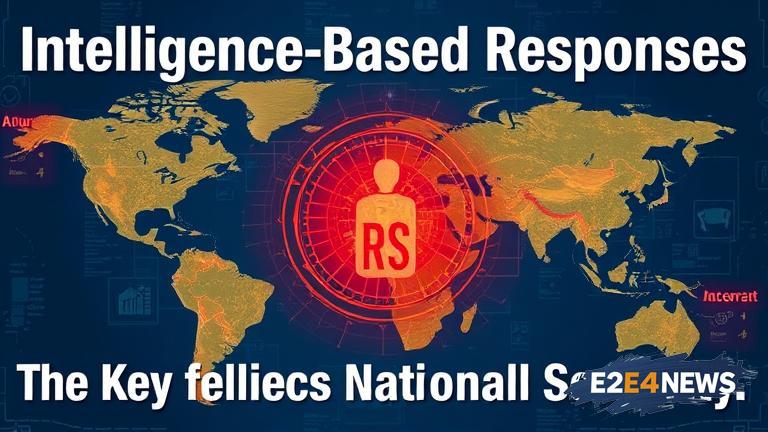In today’s complex and ever-evolving world, national security is a top priority for countries around the globe. The importance of intelligence-based responses cannot be overstated, as it plays a crucial role in maintaining national security and preventing threats. Intelligence-based responses refer to the use of intelligence gathering and analysis to inform decision-making and guide responses to potential threats. This approach allows for a more proactive and effective approach to national security, rather than simply reacting to threats as they arise. By gathering and analyzing intelligence, governments and law enforcement agencies can identify potential threats and take steps to prevent them from materializing. This can include everything from monitoring suspicious activity to conducting undercover operations. The use of intelligence-based responses also allows for a more targeted and efficient approach to national security, as resources can be focused on the most significant threats. Furthermore, intelligence-based responses can help to prevent the spread of terrorism and other security threats, by identifying and disrupting networks and cells before they can carry out attacks. In addition, intelligence-based responses can also help to build trust and cooperation between different countries and agencies, by sharing intelligence and best practices. This can help to create a more coordinated and effective approach to national security, and can help to prevent threats from spreading across borders. The importance of intelligence-based responses is not limited to national security, but also has implications for law enforcement and counter-terrorism efforts. By using intelligence-based responses, law enforcement agencies can more effectively target and disrupt criminal networks, and can help to prevent crimes from being committed. The use of intelligence-based responses also requires a high degree of cooperation and coordination between different agencies and countries, which can help to build trust and improve relationships. In recent years, there has been an increasing recognition of the importance of intelligence-based responses, with many countries investing heavily in intelligence gathering and analysis. This has led to a number of successes, including the disruption of terrorist plots and the prevention of major security threats. However, there are also challenges associated with the use of intelligence-based responses, including the need to balance security concerns with individual rights and freedoms. There is also a need for greater transparency and accountability in the use of intelligence-based responses, to ensure that they are used in a responsible and ethical manner. Despite these challenges, the importance of intelligence-based responses is clear, and it is likely that they will continue to play a major role in national security and law enforcement efforts in the years to come. The use of intelligence-based responses is not a new concept, but it has become increasingly important in recent years due to the evolving nature of security threats. As security threats continue to evolve and become more complex, the use of intelligence-based responses will become even more critical. It is essential for governments and law enforcement agencies to continue to invest in intelligence gathering and analysis, and to develop new and innovative approaches to intelligence-based responses. By doing so, they can help to stay ahead of emerging threats and keep their citizens safe. In conclusion, the importance of intelligence-based responses cannot be overstated, and it is essential that governments and law enforcement agencies continue to prioritize this approach to national security and law enforcement. By using intelligence-based responses, they can help to prevent threats, build trust and cooperation, and keep their citizens safe.
